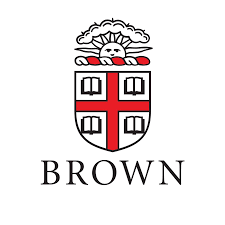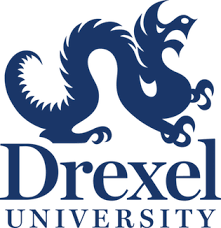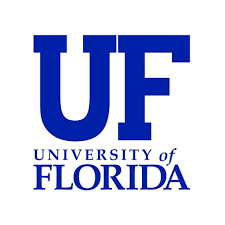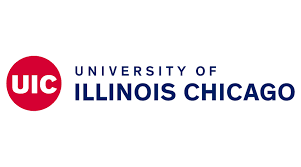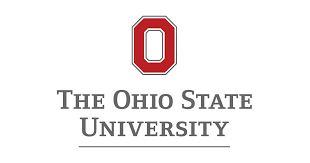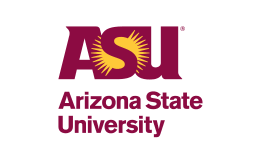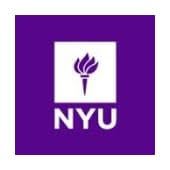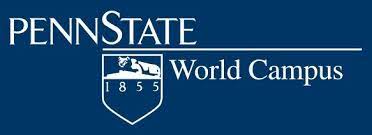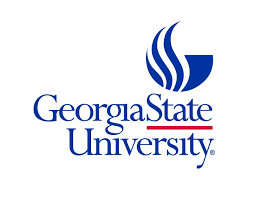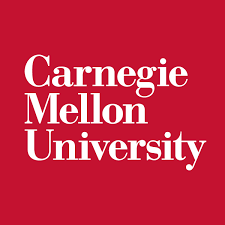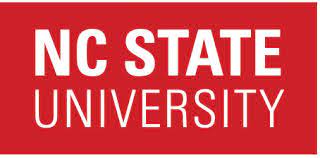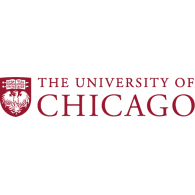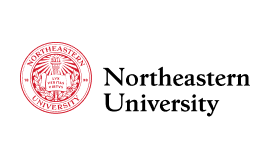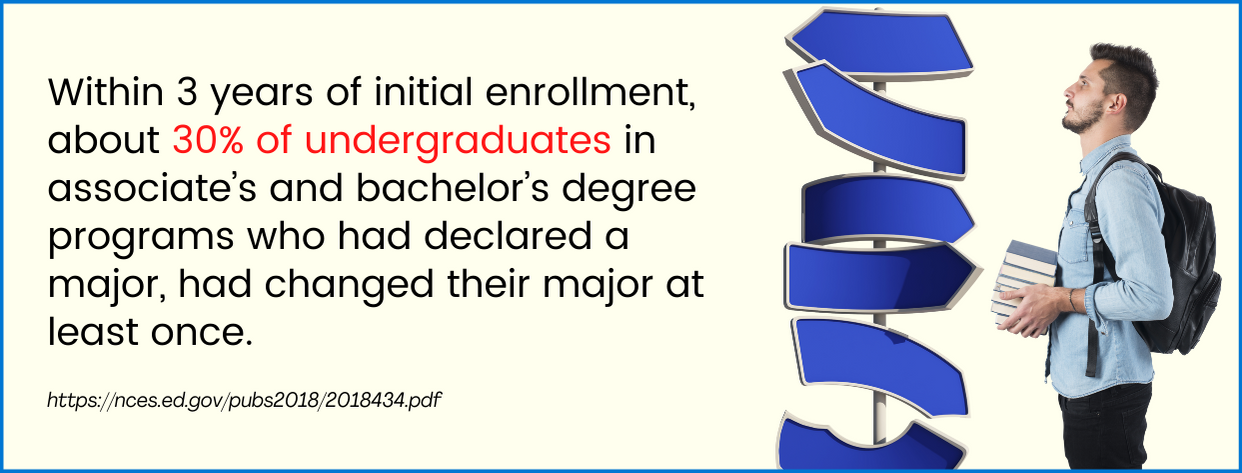Find Your Perfect School
Undecided majors are a common issue among new college students. As you graduate from high school, your young adult life is just beginning.
Sure, you want to make all the right decisions, but what if you don’t know where to start? Please read on!
Was there something you dreamed of becoming when you grew up? As a kid, you would’ve quickly answered the question, with the top answers being doctor, teacher, and veterinarian. Many others also said they wanted to become a movie star, a musician, or an astronaut.
If only it were so easy for many college freshmen to answer the question, “What major do you want to pursue?” then there would be little need for this article!
But the fact is that an estimated 20% to 50% of incoming first-year college students have yet to choose a major course of study.
Understandably, colleges and universities have concerns regarding their higher need for support to stay in the institution. Indeed, undecided students have a higher risk of leaving their colleges or universities for many reasons.
Are you also undecided about your major in college? Well, it shouldn’t be a big deal since you’ve already taken the first step toward life success – your decision to pursue a college education!
Here, we will examine the implications of being an undecided major and which schools you can consider.
Quick Summarization:
If you have not decided on a major yet, you’re not alone! Many students begin their college careers with absolutely no idea what they would like to focus on. Sure, there are plenty of considerations when you have not chosen a specific major yet. But we are here to help, for there are several schools that let you “explore” before making an important life-changing decision about your future. The below-listed schools are willing to help you find a major… and be successful at it! Check them out!
METHODOLOGY
Based on several factors, the colleges and universities on this list were chosen from favorable undeclared students to exceptional student support services.
- The institution doesn’t require applicants to declare their respective major as an admission requirement. You can declare yourself as an undecided student, and it won’t be taken against you. Your application will be evaluated based on other merits, such as GPA, admission essay, and extracurricular activities.
- The college or university offers a robust general education curriculum wherein students can explore their interests before deciding on a major. The structured core curriculum for first-year students, which may also apply to sophomores, allows students to transfer their credits and learn into a specific concentration later on. The interdisciplinary approach of the general education curriculum will also be valuable in interdisciplinary majors, such as international affairs.
- The institution encourages undecided students to explore multiple majors, usually through exploration programs or special courses. The best schools have an open curriculum, too, where students can create their personalized coursework based on their desired subjects. But this doesn’t mean that students can run roughshod over the university as there are rules about earning a degree.
Examples include Brown University and Amherst College, featured here, and Wake Forest University and Vassar College.
Wake Forest allows students to choose a major after completing 40 hours of study and even has a Major Exploration Week for parents and students. Vassar College has a program where students can tailor their coursework in an independent program and allow students to declare their major until the end of their sophomore year.
- The college or university offers meta-majors, a fairly new academic model but with significant success so far. Meta-majors are academic courses with related or common content within a larger academic or career discipline. Examples include business and accountancy, arts and humanities; public safety; social and behavioral sciences; and health sciences.
The main purpose of meta-majors is to assist you, an undecided student, in exploring related majors, determining their suitability to your unique personal goals, and making a good choice in a major. You’re being given more wiggle room so you can make a specific area of study in a broader discipline.
Examples of well-known universities that offer meta-majors are Shawnee State University, Georgia State University, and Tallahassee Community College.
- The institution must have satisfactory student support services for undecided students, as previously emphasized. Getting one-on-one attention, even if it’s just for a few times, from an academic advisor can mean the difference between staying and dropping out of college! Again, smaller colleges may be a better fit for one-on-one attention, but larger universities have their merits, too, in this regard.
Furthermore, the faculty members should be more engaged with undecided students since their professional experience will have more weight during decision time. Their academic advising isn’t the most important aspect, too – their ideas and inspiration, and personal mentorship are just as important in student development.
- The college or university should have a wide range of academic and extracurricular clubs, perhaps even a few career organizations. These clubs aren’t just excellent venues for personal socialization and professional networking but also for deciding your major.
You will be able to test the waters of specific degree programs, listen and learn from the experiences of students who have been involved in their chosen majors, and establish relationships for a more meaningful college experience.
But don’t limit yourself to clubs that are related to your chosen major either! Your college experience becomes more enjoyable when you challenge yourself and expand your horizons.
15 Best Colleges for Undecided Majors
Brown University
: 45 Prospect Street Providence, RI 02912
: 401-863-1000
Brown University epitomizes the best of an open curriculum where students can design their academic paths based on their unique learning needs and goals. Instead of complying with a prescribed curriculum, students are encouraged to create their course of study before choosing their major.
As a result, they become creative thinkers whose risk-taking capacity combines intellectual decision-making and practical problem-solving skills.
However, students must still choose a major after participating in the open curriculum program. Brown University offers more than 80 academic concentrations that allow students to develop their specialized skill sets in specific areas of study.
During the open curriculum program, students enjoy the benefits of personalized guidance from faculty members, peer advisors, and career counselors. Undecided students can tap into the following student support services during office hours, classrooms and extracurricular events, and others.
- Meiklejohn’s peer advising counselors consist of sophomores, juniors, and seniors who provide first-year students with advice, guidance, and support regarding their new academic and non-academic lives. Peer support is a crucial aspect of student success because it decreases confusion and isolation.
- Academic advising deans support undecided first-year students to make more informed choices regarding their majors and guidance for personal growth. Deans are also the students’ partners in taking advantage of resources to make their college experience meaningful.
- Faculty advising fellows provide students with opportunities for dynamic intellectual explorations, including hosting events. Their role may even extend beyond the classroom but always on a professional level.
- Randall’s sophomore advisors are also faculty members who work with sophomores in identifying their majors. Brown University encourages its students to pick a major by their sophomore year. The Matched Advising Program complements the program for Sophomores, where juniors and seniors provide peer-to-peer one-on-one and group guidance for sophomores.
- The CareerLAB is where students get professional career-related services, including writing resumes and cover letters, preparing for interviews, and getting internships. Students can also access the Swearer Center for Public Service to establish connections with the Brown community.
With so many support services, you will find that being an undecided student at Brown University doesn’t last long!
Drexel University
: 3141 Chestnut Street, Philadelphia, PA 19104
: 215-895-2000
Drexel University has favorable policies toward undecided students, and its online degree programs are among the best in the country. Incoming first-year students still in a major selection quandary can check out the College of Computing and Informatics and the Goodwin College of Professional Studies.
At the College of Computing and Informatics, undecided students take math and programming classes, as with all CCI students. Academic advisors and students work closely in assessing their interests and exploring the programs, all while keeping pace with the curriculum.
Students may attend lectures and workshops that widen their horizons and contribute to their decision-making process.
But undecided students must pick a major and declare it no later than the end of the spring term during their freshman year! This should be an easier decision to make considering the extensive guidance provided by the academic advisors and real-world exposures through site visits.
Students can choose from several majors, including a BS in Computing & Security Technology, a BS in Information Systems, and a BS in Software Engineering; double majors are allowed.
At the Goodwin College of Professional Studies, undecided students can enroll in its First-Year Exploratory Studies. Students complete their full-time studies during their freshman year and then pick a major by the end of the academic year.
The program allows students to explore their options, take on a manageable course load, and attend seminar courses with program-specific guidance and support.
At the start of the academic year, sophomore students must have chosen one of several academic options. These are the four-year program with a single co-op, the five-year program with three co-ops, and the no co-op option.
With the robust academic and career advising you gained during your freshman year, you should be able to make a smarter choice.
The cooperative education program is also among the reasons for Drexel’s popularity. Students enjoy full-time, paid work for up to 18 months in a relevant field, an excellent opportunity to learn the ropes before graduation. Even if you were an undecided freshman, your co-op training would banish the year of living without certainty of your career path.
University of Florida
: Gainesville, FL 32611-4000
: 352-392-1374
First-year students at the University of Florida are encouraged to pick a major, but it isn’t compulsory. Undecided students can declare their intention to be in the Exploratory category upon being admitted to the university.
The opportunity to explore a wide range of areas is, indeed, valuable because it can lead to informed academic and career choices!
Even when you have chosen a major, you may still change it afterward, thanks to the opportunity to explore multiple subject areas. Many students changed their first major after realizing that it wasn’t what they expected it to be, and that’s okay, too.
Undecided first-year students can choose from three exploratory categories, namely:
- Science and Engineering
- Social and Behavioral Sciences
- Humanities and Letters
But this is a temporary status as undecided students can only be in the exploratory program for the first three fall and spring semesters. Note that students in the Innovation Academy are limited to the spring and summer semesters as belonging to the undecided category.
In either case, students have more academic freedom to choose their coursework from different disciplines and, thus, explore their options.
The Academic Advising Center provides exploratory students with the appropriate academic guidance, particularly in choosing their courses. Undecided students are also affiliated with the College of Liberal Arts and Sciences and, thus, have access to their student-centric resources.
Students also have the ultimate responsibility of picking a major, meaning they must be actively involved in their explorations of the academic offerings. The university offers a wide range of useful tools, including Exploratory Roadmaps, a free Canvas course; links to on-campus and online resources; and even reflection exercises.
There are numerous online majors offered by UF, too, including biology, anthropology, business administration, and criminology. Aside from its favorable policies toward undecided students, the Gator’s alma mater is an excellent place to earn your degree!
Its status complements its designation as a preeminent university by the Florida Board of Governors as among the top 10 best public universities in the nation. Plus, it has plenty of student organizations, including fraternities and sororities, sports teams, and recreation options.
University of Illinois – Chicago
: 1200 West Harrison Street, Chicago, IL 60607-7161
: 312-996-4350
The University of Illinois Chicago is among the best national universities in the United States, and it has a well-deserved reputation considering its academic excellence. As its students are called, The Flames also takes pride in its diverse student body, dynamic Greek life, and student media.
Best of all, UIC welcomes undecided freshman applicants! With an estimated 25% to 30% of its incoming students falling into the undeclared category and about 75% changing their major at least once, it’s fully cognizant of their needs, too. It offers a wide range of online resources that aid undecided students in exploring their academic majors.
Students start with the self-assessment tools, an exploratory process where individual reflection is encouraged. The assessments identify your unique skills, interests, and values and then match suitable careers.
Then, the major exploration tools allow students to explore each major’s career possibilities, including LAS Majors Sort and My Plan.
But determining your major isn’t just about theoretical situations – it’s also about getting real-world exposure and involvement! Undecided students are provided with many opportunities to gain experience, from membership in student organizations and advisory boards to volunteering.
The LAS Undergraduate Research Initiative and UIC Handshake are great examples of these opportunities.
Applicants can choose from several undergraduate colleges as undecided students, namely:
- Liberal Arts & Sciences
- Architecture, Design, and the Arts: Design Foundation at the School of Design
- Architecture, Design, and the Arts: Art Foundation at the School of Art & Art History
- Applied Health Sciences
- Engineering
- Business Administration
These programs have specific admission requirements, among other policies, so ask the admission officer and academic advisor. Note also that other University of Illinois campuses have undeclared programs that are also worthy of attention.
For example, at UI – Urbana Champaign, the Grainger College of Engineering has its First-Year Engineering Undeclared program where selected first-year students can declare a first and second-pick major. Students take Engineering 101 along with foundational courses, as well as get dedicated advising from academic advisors.
Ohio State University – Columbus
: 281 W Lane Ave, Columbus, OH 43210
: 614-292-6446
Ohio State is a designated Public Ivy university, and Buckeyes are rightfully proud of its status as among the best public universities in the country.
Of its numerous degree programs, its political science, finance, public affairs, audiology, speech-language pathology, and healthcare administration programs are among the best in the United States.
Applicants, however, can become overwhelmed by the sheer number of choices – over 200 academic programs! Fortunately, OSU accepts applicants as undecided students, but they must choose between two options.
First, the University Exploration program allows students to experience several courses and explore their options before picking a major. Academic counselors provide students with personalized assistance and guidance in choosing courses based on their strengths, interests, and values.
Assessment tools are also available to identify these individual aspects and, thus, contribute to a more informed choice of a major.
Students in the University Exploration program can choose from seven tracks depending on their initial assessments. These tracks are known as meta-majors, too, because these offer a broad look at specific fields of study. Students must seek academic advisors’ advice if they want to enroll in two or more meta-majors.
These tracks are as follows:
- General
- Arts, Innovation, and Creativity
- Health and Human Services
- Management and Industry
- Science, Technology, and Environment
- Education and Public Service
- Behavior, Culture, and Context
Students also can participate in a series of workshops that provide in-depth information about the majors, among other things.
Seniors with outstanding track records can also provide first-year students and sophomores with practical information about college majors and experiences. Success motivators are also paired with undecided students as part of an early intervention program.
Second, undecided students can also enroll in a specific college or school within OSU if they have a general idea of their field of interest but are without a major yet. The admission application has checkboxes for the following options for undeclared students:
- Business Administration, Undecided (Fisher College of Business)
- Environment and Natural Resources, Undecided
- Arts and Sciences, Undecided
- Health and Rehabilitation Sciences, Undecided
But you can’t be an undecided student for the rest of your college life at OSU! According to the university’s policies, you must choose a major, starting as early as the end of your freshman or sophomore year.
Boston University
: 233 Bay State Road, Boston, MA 02215
: 617-353-2300
With more than 34,000 students, incoming first-year students will understandably feel like a small fish in the largest pond on this side of the Bay State! Fortunately, the Terriers are a friendly bunch that welcomes new students while the university offers personalized student-centric resources.
With over 250 degree programs ranging from popular majors like business management, engineering, and public health to more obscure majors like deaf studies, it can be overwhelming for new students.
The good news? BU has a BU Hub, a university-wide general education program where students explore multidisciplinary courses.
Their multidisciplinary education develops student capacities in six areas:
- Philosophical, Aesthetic and Historical Interpretation
- Scientific and Social Inquiry
- Quantitative Reasoning
- Communication
- Intellectual Toolkit
- and Diversity, Civic Engagement, and Global Citizenship.
The BU Hub is the perfect place for undecided students since it prepares them for a competitive world while also providing them with the required college education.
Students earn units to complete general education requirements, and the program can be completed in 10-12 courses. These courses can also be used as credits toward earning major and minor degrees.
Aside from the BU Hub, students can also enroll in many of the university’s schools and colleges on an undecided or undeclared status. Students don’t even have to declare a major until their sophomore year!
Incoming undecided first-year students must consult with academic advisors to create personalized coursework and determine the best steps.
The First-Year Experience (FY 101) course is specifically designed for undecided students, too. This is a one-credit course taken during a single semester where students are introduced to BU and its community.
This isn’t an academic class per se as students gain insight into their strengths, values, and interests; enjoy peer-to-peer interactions, and explore their options in majors. But there’s also an emphasis on a liberal arts education and its transferable skills, particularly in their relevance to different careers.
Indeed, a BU education ticks off all the right boxes where excellent, well-rounded, and well-grounded education is concerned! Come in as an undecided student and leave as a competitive graduate.
Arizona State University
: 1151 S. Forest Ave. Tempe, AZ 85287
: 480-965-2100
Incoming first-year students will have a field day choosing from more than 350 degree programs offered at 17 colleges at Arizona State!
Of its over 38,000 online students, it’s safe to assume that many are undecided students, too. But Arizona State doesn’t discriminate against them – its charter, after all, is based on inclusivity.
Undecided students enrolled in ASU Online choose from four exploratory tracks:
- Math, Physical Sciences, Engineering and Technology
- Health and Life Sciences
- Social and Behavioral Sciences
- Humanities, Fine Arts and Design
Each of these tracks has a general academic curriculum while also providing a broad overview of the degree programs. Students can then learn about the realities of a broad area of study while earning credits toward a degree.
But even undecided students must decide on a major, if not sooner, then later. At ASU, you must pick a major after you have completed 45 credit hours. Your choice will be more informed and more suitable to your unique academic and career goals because of your experience as an exploratory student.
There are many benefits to being an undecided student at ASU Online, too! You will receive personalized academic advising, access to exclusive college events, and participation in major exploration workshops and career events. Your academic advisors will also assist in keeping you on track so you can finish your degree on time.
But remember that academic advisors cannot dictate your decision about a major. You must be active in using self-assessment tools, listening to their advice, and asking for fellow students’ input.
Your decision will be your own, although it must be said that you are also allowed to change your major. You may even pursue a double major or a major with a minor, a choice borne of your academic explorations.
Aside from its flexible programming for undecided students, ASU is also a top choice for a college education because of its reputation for academic excellence! ASU is a consistently top-ranked university for online bachelor’s degrees in business and psychology led by the same on-campus faculty.
Ranked as the #1 Most Innovative School, ASU is a leader in student support services and knowledge delivery.
New York University Gallatin School of Individualized Study
: 1 Washington Place, New York, NY 10003
: 212-998-7370
NYU’s Gallatin School of Individualized Study is at the top of the list for a truly interdisciplinary, individualized education!
Students must be intelligent, creative, and focused on thriving in its out-of-the-box approach to higher education. Furthermore, students aren’t limited to Gallatin as courses can also be taken at NYU’s other campuses.
Gallatin students develop customized programs of study with the guidance of their academic advisors. Nonetheless, every program of study must have a concentration based on the student’s academic and career goals.
Lest it seems otherwise, the concentration isn’t the same as an undergraduate major – it’s based on a generative idea that integrates multiple disciplines, encourages intellectual pursuits, and creates a dynamic foundation for lifelong learning.
For this reason, students can combine courses from different disciplines and other learning experiences, such as tutorials, private lessons, and independent studies. Every student also receives top-notch academic advice from two faculty members – a faculty adviser and a class adviser, each one of which has specific yet complementary roles.
The former guides students in creating their concentration from the different disciplines, while the latter provides support in the classroom.
Gallatin also has its First Year Program aimed at incoming freshmen students and qualifying transfer students. There are three courses in the program, namely:
- The interdisciplinary seminar introduces Gallatin’s philosophy, goals, and education methods, including its individualized approach. Its focus is on discussions instead of lectures on topics like capitalism and democracy, thingliness, and ancient heroes and their heroics.
- The writing seminar is where students approach writing as a craft that can be learned and write about specific topics. There’s a natural progression from descriptive and personal essays to critical essays.
- The research seminar develops the student’s skills for research, which can be applied to academic and career situations. Students are expected to complete a lengthy research paper that meets rigorous standards.
Gallatin isn’t all about academic excellence either! Students can choose from several student-led organizations, including Dancers Choreographers Alliance, Gallatin Theatre Troupe, and Students of Color & Allies. Exciting events add color to your college experience, too, with the Gallatin Arts Festival being popular.
Colorado State University-Global Campus
: 585 Salida Way, Aurora, CO 80011
: 800-462-7845
CSU Global takes pride in its exclusive focus on online education – or to paraphrase its motto, online education is the only thing it does, not something that it does. And, indeed, the online public university is among the best in the country, a testament to its determination to live up to the world-class CSU standards!
Among its notable programs is Exploratory Studies, the dedicated advising track for undecided students. This is also suitable for students who are still in the process of complying with admission requirements for their chosen major, usually a competitive one.
For example, you may be enrolled in the Exploring Business Interest track while you’re complying with prerequisites,
And you’re not alone! About one-third of every freshman class enrolled in the Exploratory Studies program, and they enjoy several benefits, too. Undecided students get academic advising from professional advising, a useful service when deciding on their major.
Easy access to introductory-level classes is also assured, and these classes can be in different areas of study to explore your options.
All classes can be credited toward your degree, too, so you’re productive with your time. Students also get assistance to access the Key Explore learning community and financial aid, including scholarships.
But there are limitations for exploratory students! You may be unable to register for major-specific courses, which will limit your coursework.
You may also find that the exploratory courses you have taken may not meet the major-specific requirements. You must then consult with an admissions counselor to determine your suitability for the Exploratory Studies program.
If you decide to become an exploratory student, you can choose from seven tracks or choose a non-specific track. The meta-majors offered at CSU Global are:
- Arts, Humanities, and Design
- Global and Social Sciences
- Environmental and Natural Resources
- Health, Life, and Food Sciences
- Physical Sciences and Engineering
- Organization, Management, and Enterprise
- Land, Plant, and Animal Sciences
Since these are meta-tracks, you have to choose a specific degree program at a future time.
Pennsylvania State University – World Campus
: 128 Outreach Building, University Park, PA 16802
: 814-865-5403
Penn State World Campus is the online university that pioneered distance education and has undoubtedly made online learning an outstanding experience. Such is its track record of academic excellence that its bachelor’s degree programs have been recognized by the likes of the US News and World Report!
Of its numerous academic divisions, its Division of Undergraduate Studies (DUS) may be less well-known, but it’s a magnet for undecided students. Here, students who have yet to decide on their major find above-par student support services that provide helpful guidance and the tools for success.
Students choose from over 275 majors, but they aren’t pressured yet to pick one. You can dabble in two or more academic disciplines, see which ones fit your personality and goals the best, and then create your program of study.
You have access to Penn State World Campus resources, including:
- The exploratory tool includes a self-assessment activity that will result in a deeper insight into your values, interests, and passions.
- The friendly, helpful, and competent academic advisers share their knowledge about the pros and cons of majors. With their help, you can navigate the oft-bewildering world of degrees and their career options.
- The right to access classes in all the online university’s academic colleges, meaning your exploratory days have just begun.
You may also want to look into the on-campus Discover House, where freshmen students get the opportunity to live and learn the Penn State way.
Penn State World Campus offers numerous bachelor’s degree programs, so there are one or two that will fit your academic and career goals. Examples include agribusiness management, behavioral health, digital multimedia design, and nursing.
Georgia State University
: 33 Gilmer St SE, Atlanta, GA 30303
: 404-413-2000
Georgia State offers more than 250 degree programs covering over 100 areas of study, which are offered across ten academic schools and colleges. No wonder many students can become overwhelmed by the sheer number of choices aside from their uncertainty about a major.
Fortunately, GSU has ways in which undecided students will feel right at home in the university while also working toward their college credits.
All new students become Freshman Learning Communities (FLC) members, organized according to their chosen meta-majors.
Students in each group take classes together, provide support for one another and create study groups, among other networking possibilities. This creates a small community with close-knit ties that anchor students in a large, diverse, comprehensive university.
Each FLC usually consists of 25 students pursuing five courses based on their meta-major. These courses include an orientation course, billed as GSU 1010, which introduces students to the GSU way of life and available resources. The other four courses are core curriculum courses, which are counted toward whatever major you pursue.
The meta-majors at GSU are:
- Arts and Humanities
- STEM
- Social Sciences
- Business
- Health
- Policy Studies
- Education
GSU is known for being a magnet for first-generation, low-income students, too, a fact that makes its meta-majors even more valuable in retaining students. With meta-majors, more students can complete their degrees since they are making the right choices instead of changing their majors 2.5 times during their stay.
Students in the FLC program must also participate in the Atlanta-Based Learning program. Here, students become more engaged by expanding their academic and civic involvement in off-campus venues.
The program includes walking tours of the GSU campus and Atlanta, tours of the CDC and discussions about Atlanta’s health issues, and meetings with community leaders about urban development issues.
Peer-to-peer mentoring is also a crucial aspect of student success, and GSU is at its forefront, too. The First-Year Experience Peer Mentor Program allows higher-level students to provide first-year students with mentoring sessions, among other useful services.
Carnegie Mellon University
: 5000 Forbes Avenue, Pittsburgh, PA 15213
: 412-268-2924
Known for its pioneering research and breakthrough inventions in data, brain science, and transportation, Carnegie Mellon University (CMU) emphasizes the value of work.
Faculty and students work closely to address a wide range of societal science and technology challenges. Making things is also an emphasis, and it shows in its comprehensive range of artworks, science and technology projects, and other objects.
No wonder CMU attracts intelligent students who dabble in multiple disciplines! Students who are yet to decide on a specific major but want to explore their options while also developing their raw talent find a haven in CMU’s BXA Intercollege Degree Programs. The programs offered include science and arts, humanities and arts, and computer science and arts.
Such combinations mean that you can have a double major in two distinct disciplines, physics, and creative writing. You can also select elective courses that can apply to a major or a minor degree.
Undecided students may also enroll in Marianna Brown Dietrich College of Humanities and Social Sciences (Dietrich College), CMU’s liberal and professional studies college. Every student who enrolls here is an undeclared student except for the Information Systems majors.
But undecided students must pick a major during their second semester, usually during the middle of the term. Students choose from over 60 majors and minors, including Economics and Mathematics, European Studies, and Statistics and Machine Learning.
There’s also the Dietrich College General Education Program, an excellent choice for undecided students. Here, students choose from a comprehensive range of courses designed to develop analytical and foundational skills for life success.
North Carolina State University
: Raleigh, NC 27695
: 919-515-2011
NC State is known for its robust programs in agriculture, engineering, and statistics, but it also offers bachelor’s degrees in more than 100 areas of study. Undecided students then have plenty of wiggle room to decide on their major when the time comes, and NC State is there to guide them toward success.
Exploratory Studies is NC State’s program for undecided first-year students whose majors are yet to be determined for one reason or another. Students become actively engaged in finding their passion and, thus, in choosing their specific program of study.
The support services offered by NC State include personalized academic advising and guided exploration of degrees and career options. Meaningful interactions between students from all year levels, advisors and faculty members, and professionals are also common.
Unsurprisingly, about 10% to 15% of all incoming freshmen students are enrolled in Exploratory Studies at NC State. Being an undecided student doesn’t carry the stigma it once did partly because students are still works-in-progress.
Even students with a major during their freshman year may also change their minds one or two times before their graduation, a right that undecided students also enjoy.
The Exploratory Studies courses include University Studies Courses (USC) 101 and 102. Undecided students can also become part of the Exploratory Studies Village, a living and learning arrangement for first-year students.
Students thrive in a close-knit community where academic workshops and fun events make for a well-rounded college experience.
Once you have decided on a major, you will find that NC State’s academic offerings represent the contemporary world where diversity is a crucial component. Online students choose from majors like BA in Leadership in the Public Sector.
University of Chicago
: 5801 South Ellis Avenue, Chicago, Illinois 60637
: 773-702-1234
UChicago’s reputation as among the world’s best universities attracts the best and the brightest, but not everybody can gain admittance because of its highly selective admission process. But admitted students love one of the rewards that come with hurdling the uber-competitive process – no need to declare a major!
Every student becomes undecided since the university application doesn’t allow the declaration of a major for first-year students. Students can only declare their chosen major in the spring semester of their junior year!
While the delay seems unnecessary, perhaps even means wasted time, money, and credits, it isn’t. Students take core curriculum classes during their first three years, but they have ample wiggle room to choose their courses.
Most of the courses can even be completed according to your time and pace. The core curriculum is also specifically designed to have credits that can be applied to any major at UChicago.
But there’s also a formal structure in the curriculum so that students won’t be confused about the best sequence of courses.
The first course, for example, is the Humanities Core classes during the autumn and winter quarters. While several sequences are possible, all of them are introductions to college-level writing, reading, and analysis.
The focus is on social science, language, science, science, and math for the second and third courses. This is the part where undecided students must carefully consider their possible majors since their decision will affect their core classes. The fourth course is optional but highly recommended.
And being a UChicago student is never boring! More than 400 student organizations, including academic clubs, cultural groups, and common interest organizations. More than a dozen fraternities and sororities add to the fun college experience, too.
Northeastern University
: 360 Huntington Ave., Boston, MA 02115
: 617-373-2000
NEU’s cooperative education program provides its students with a productive college experience wherein classroom study is strengthened by professional experience. The university has strong partnerships with more than 3,100 partners worldwide, and it’s considered among the world’s most extensive internship programs. Participation isn’t compulsory for all academic disciplines, but most undergraduate students still engage in the co-op system.
But first, you must be admitted as a student, never mind if you don’t have a major yet. You can enroll in NEU’s Explore Program, a dedicated program for undecided or undeclared students. You can take the time to explore the academic disciplines, ask for advice, and enjoy your multidisciplinary coursework.
Undecided students receive academic advice from academic advisors and student leaders, meaning you will get a balanced view of what’s offered.
The peer-to-peer support and counseling strengthen your sense of belonging, too, while the freshman seminar course is an introduction to university life. There are also exploratory events where students, alumni and faculty, and recognized industry leaders come together.
When decision time comes, students can choose from more than 200 majors and double majors! Huskies are enrolled in degree programs at:
- The College of Arts, Media and Design,
- D’Amore-McKim School of Business,
- and College of Social Science and Humanities.
Frequently Asked Questions
What Does A “Major” Mean in College Education?
When used in post-secondary education, the term “major” refers to the specific area of study that determines the number of credit hours and the types of courses that a student must pursue to earn a degree.
For example, engineering students have four-year coursework with greater emphasis on engineering subjects.
But there are college students who haven’t selected their respective major yet and, thus, they are categorized as “undecided” or “undeclared.”
Don’t worry, as most colleges and universities don’t discriminate against undecided students, particularly during the first year of study, because it’s a temporary situation. Many institutions even encourage newcomers to explore their interests before deciding on their major!
The temporary nature of being an undecided student also means that it isn’t something to be ashamed of, not even in Ivy League schools. This is because nobody graduates from college without a major!
At some point in your college life, usually by the start or end of your sophomore year, you must choose your major to proceed with your studies.
The subject of choosing a major is also dependent on the institution’s specific policies. Most, if not all, institutions require their students to choose a major and pursue coursework under their choice.
However, some policies allow students to pursue a double major, such as in history and anthropology, or to pursue a major and a minor.
Some institutions even allow their students to design their own respective majors instead of following a predetermined one! In this instance, you will work with an academic advisor or faculty member to create custom coursework that matches your desired area of study.
For example, you may be allowed to take a wide range of classes in political science, sociology, and legal studies to create a major in human rights.
And then, there are other terms being used in conjunction with the term “major.” First, concentration isn’t the same as major, although these terms are directly related. A concentration refers to the specific course of study within a specific major.
For example, students in a Bachelor of Science (BS) in Business Administration program can choose from different concentrations, such as human resource management, finance, and e-commerce.
In a way, the concentration allows for even more specialization in a specific area of study. But it must also be emphasized that institutions may also use the terms “major” and “concentration” interchangeably.
Second, a minor is also an area of study usually different from a major with fewer courses required to achieve it. You may be required to pursue ten classes to achieve a minor and 20 classes for a major.
For example, you can pursue a major in marketing with a minor in communication or a major in business administration with a minor in arts. When choosing a minor-major course, you must consider your career plan since what you learned in school should ideally be applicable in your future jobs.
Third, a bachelor’s degree is the summation of your college coursework, including your major and minor courses. Your degree indicates the area of study you pursued and the classes you took that counted toward it.
Are There Benefits to Being an Undecided Student?
Yes, of course, there are benefits to being an undeclared student, but it must also be said that you may want to consider your options.
While admissions policies vary between schools, it’s safe to assume that being an applicant with an undeclared major will likely depend on whether you’re a strong or weak applicant.
If you’re a strong applicant, you may find that an undeclared major won’t have a significant impact on your chances for admission.
Your high GPA and test scores combined with your eye-catching extracurricular involvement and persuasive essay can be satisfactory. Most institutions holistically evaluate their applicants anyway, so your undeclared status isn’t a big deal.
But if you have a weak application, you may have an issue on your hands! The admissions officer may see your undeclared status as a weakness, such as proof of being indecisive or of the absence of commitment to contribute to the university. But if you express passion for a specific major, you may well become a valued applicant.
With a declared major or not, you must exert as much energy as possible to make a strong application! Being an undecided student will become a secondary concern.
With that said, here’s a summary of the benefits of being an undeclared student upon admission.
- You have the opportunity to explore your interests in a meaningful way during your undeclared years, usually first-year students and sophomore years. You can research the degree programs offered by the institution first-hand, such as by sitting in the classes and interviewing students.
- You will likely have less stress about your learning curve as your coursework consists of general education and liberal arts classes. You can also focus on other freshman experiences, such as effective time management, making friends, and finding suitable housing. Your mental health may even be better for it because you’re less anxious about following a specific path when you’re truly undecided.
- You may be assigned an academic advisor specializing in undeclared students. You will then have professional guidance related to the available degrees and concentrations, campus resources, and career services, among others.
- You have the flexibility or fluidity to choose courses for your core curriculum before deciding on your major. Since you should determine your passion and career goal by your sophomore year, you avoid flip-flopping in your junior and senior years. You’re more likely to graduate sooner than later, too.
But this isn’t to say that changing your major once you’ve chosen one is a big no-no either! In a study published by the Education Advisory Board, most students who switched their majors still reported completing their degrees in four years.
Even students who declared their final major between the second and eighth terms of enrollment have an 82%-84% graduation rate.
In many ways, pursuing a major based on an ill-informed choice can be just as bad as not having a choice – yet – because you’re still gathering information.
In the interest of fairness, we are featuring the disadvantages of not declaring a major on your college application.
- You may be loaded with advanced-level math and science courses during your junior year because you didn’t take them in your sophomore years. For instance, you may have decided to become an engineer, and you now have to play catch up.
- You may be unqualified for scholarship opportunities and housing slots, among other things, because you didn’t declare a major on your application.
While the pros may outnumber the cons in the early stages of your college life, you must still make a decision, if not sooner, than later.
When Should You Declare a Major?
There’s no hard-and-fast rule regarding the best time for declaring a major since each individual has unique considerations.
In general, nonetheless, your timing will be based on two primary factors – first, what the specific policies of your college or university are, and second, when you have decided on your major.
You must first ask the admissions officer about the school’s specific policies on declaring a major so you can make decisions accordingly. Most schools require their students to declare a major by the end of their sophomore year, at the most. Many schools don’t even offer their students the option of choosing their major until then!
But there are two situations where an undecided or undeclared status on your freshman application may not be in your favor. First, your admissions essay and your undecided status on your application form don’t match up.
You may have stated your desire to become an engineer since you were a child in your admission essay, and it doesn’t add up in your application form. Your indecisiveness or inconsistency may be looked upon with less favor.
Second, you may want to be admitted into a program that requires a separate application from the general university application form.
By putting “undecided” on the latter, you may not even be considered for admission into the program you want to be in. This is the case with nursing and business programs and honors programs, where students may be enrolled starting their freshman year.
This can also be true for scholarship programs where only students enrolled in specific degree programs can be considered for eligibility purposes. Examples include the SMART (Science, Math, and Research for Transformation) program for students pursuing degrees in math, science, technology, and engineering and the Nursing Scholarship Program offered by the Department of Health and Human Services.
How Does an Undecided Status Affect Your Choice of Major and Your College Experience?
Again, the answers will depend on the specific policies of the school you’re planning to enroll in, or you are already enrolled in. If you’re an applicant to a school where an “undeclared” status isn’t allowed, particularly in career-specific degree programs, then you must choose a major.
In some cases, you may even be asked to explain your reasons for choosing it and your skillsets to contribute to the university’s reputation.
But there are only a few schools with such strict policies! Even schools that require students to pick a major before enrollment as incoming first-year students offer flexible options.
The University of Illinois-Urbana Champaign, for example, requires its applicants to declare a first-priority and a second-priority major; there’s no box for “undeclared” students to check.
The good news is that you can change your major after you have been admitted into the institution! You can, for example, shift from accountancy to entrepreneurship or from fine arts to business management. You won’t be stuck in whatever major you first enrolled in.
Then, some schools will admit students starting from a specific year of their college studies while disallowing students from other degree programs to transfer at specific times.
For example, at the University of Pennsylvania’s Wharton School, you must submit an application to transfer for your sophomore year. You won’t be able to apply during your junior year as it’s simply not allowed.
These so-called limiting schools have more flexible policies than the “no undeclared students” schools but limit access to certain degree programs post-admission.
The best schools for truly undecided students are the flexible institutions that allow students to check an “undeclared” box or state “undecided” on their application forms.
Better yet, these institutions encourage students to defer their decision until after they have reached a certain semester or completed a certain number of credits in their college studies.
Many flexible schools even have excellent student support services specifically designed for undecided students! These can include multidisciplinary freshman coursework, exploratory programs, and special counseling services. These schools are discussed in greater detail in the 15-school listing below.
While your college experience as an undecided student will be unique to your circumstances, there are many similarities with other similarly undeclared students.
You will likely be assigned to the College of Arts and Sciences or a similar department because it’s usually the largest of its kind, with numerous majors offered. Your coursework will then be suitable for most of the majors offered, so there’s a seamless transition later on.
Your social circles may also be affected by your decision to be an undeclared student. You may be able to engage in several different clubs and study groups with the option of continuing or discontinuing them later on.
More importantly, and as previously mentioned, your scholarship opportunities may be affected by your undeclared status. You may have to choose one or two majors – and declare them – to be eligible for multi-departmental scholarships. You wouldn’t want to miss out on these scholarship opportunities, too.
How Can You Choose a School If You’re Undecided About Your Major?
While it may seem like a great idea to enroll in a large university since it offers numerous degree options, it may not be so in all instances.
You may be unable to get one-on-one academic advising, resulting in an excellent pick in your major after that. You will likely, on the other hand, enjoy personalized guidance and support on this matter.
This isn’t to say that larger universities are deficient in this regard! Many of the universities on the list are among the largest in their state, if not the country. The trick is choosing the right institution with satisfactory student support services for undecided students like yourself.
You must also research the schools’ admissions and transfer policies. The more informed you are, the more your decision about enrolling in a certain school as an undecided student will be smarter.
You don’t want to apply as an undecided student in your freshman year and then find out later in your sophomore year that the major you’re planning to enroll in doesn’t accept transferees!
Be sure to ask about the student support services for undeclared students, too, and it’s a point that we can’t overemphasize due to its importance! This isn’t about VIP treatment but about getting sufficient professional support to stay in the university and finish your college education.
Points to Ponder
Now that you know about these colleges and universities, you may want to check out their programs in greater detail! Keep in mind that even if you’re undecided about your major now, the first step that you take will get you closer to a definitive decision. Check out the above options for the best colleges for undecided majors.
Before you go, check these out:


